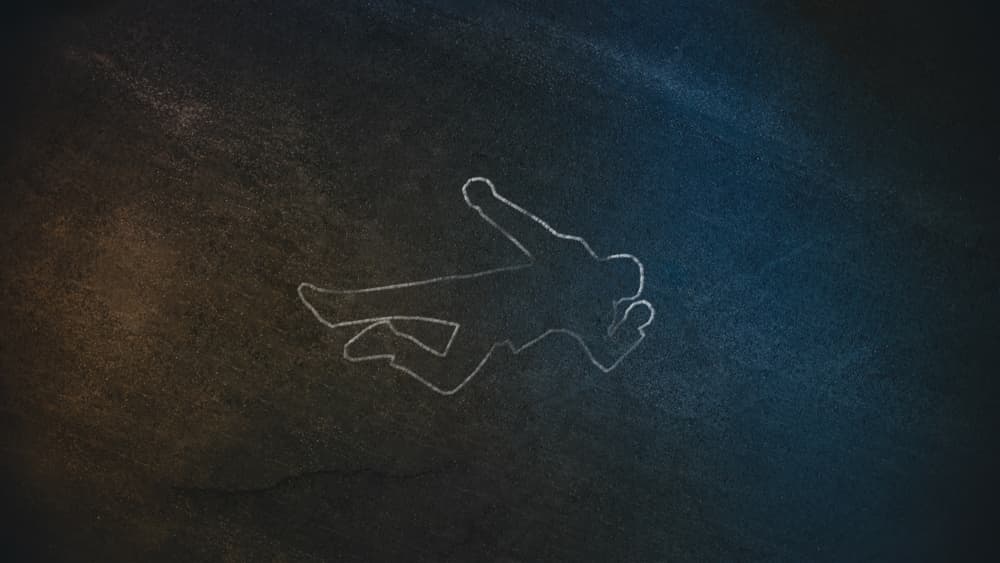Possible Defenses in Homicide Cases

A homicide charge, whether it is for murder or manslaughter, is the most serious allegation a person can face in the Texas justice system. The weight of the accusation alone feels like a conviction, and the prospect of a life sentence or decades in prison is terrifying.
When confronted with the state’s full power, it is natural to feel that your life is over. However, an accusation is not a verdict. The path forward begins with building a powerful defense strategy.
Exploring the possible defenses in homicide cases is the first step toward reclaiming your future and protecting your liberty.
The United States Constitution guarantees you the presumption of innocence. This is not just a phrase; it is the bedrock of our legal system. The burden is entirely on the prosecution to prove every single element of their case beyond a reasonable doubt.
Your defense is not about proving your innocence but about showing that the state cannot meet its high burden of proof. Every successful defense starts with a meticulous examination of the evidence and a deep knowledge of the legal avenues available to you.
The Foundation of Any Homicide Defense Strategy
Before exploring specific justifications like self-defense, the primary role of your legal team is to dismantle the prosecutor’s case piece by piece. A prosecutor must establish several core facts to secure a conviction for any homicide offense.
If even one of these elements is in doubt, their entire case can fall apart.
A strong defense begins by challenging the state’s ability to prove each of the following:
- Identity: The prosecution must prove, beyond a reasonable doubt, that you are the person who committed the alleged act.
- Causation: The state must show that the defendant’s actions directly led to the death of the other person.
- Intent: For a murder charge, prosecutors must prove you had the specific intent to cause serious bodily injury or death. For manslaughter, they must prove recklessness.
- Absence of justification: If an affirmative defense is raised, the state must then disprove that defense beyond a reasonable doubt.
Your defense team’s independent investigation is designed to find weaknesses in the state’s evidence on these points. This creates the reasonable doubt necessary for an acquittal.
Affirmative Defenses: Justification and Excuse
In some situations, the defense does not dispute that the accused person caused the death of another. Instead, the defense argues that the action was legally justified or excused.
These are known as affirmative defenses. In Texas, the most common and powerful of these defenses are centered around the protection of oneself, others, or property.
Arguing self-defense in a murder case
Self-defense is one of the most recognized legal justifications for a homicide. The law permits you to use force, including deadly force, to protect yourself from another person’s use of unlawful force.
In Texas, this right is particularly strong, but it is not unlimited. A successful self-defense claim requires showing your actions were reasonable and necessary under the circumstances.
Key elements of self-defense in Texas
- Reasonable Belief: You must have genuinely and reasonably believed that force was immediately necessary to protect yourself against the other person’s unlawful force.
- Imminent Threat: The threat of harm must have been immediate. You cannot claim self-defense for an attack that might happen in the future or one that has already ended.
- Proportional Force: The amount of force you used must have been proportional to the threat. You are justified in using deadly force only if you reasonably believe it is necessary to protect yourself from the other person’s use or attempted use of unlawful deadly force.
- Texas has a “Stand Your Ground” law, which means you have no duty to retreat from a place you have a right to be before using deadly force, as long as the elements of self-defense are met.
The right to defend others or property
The right to protect yourself extends to protecting others. If you reasonably believe that another person is facing an imminent threat of unlawful force, you can “step into their shoes” and use the amount of force they would have been justified in using to protect themselves.
Defense of a third person requires:
- A reasonable belief that the third person was in immediate danger.
- A belief that your intervention was necessary to protect them.
- The use of force that was proportional to the threat they faced.
The law also allows for the use of force to protect property, but the rules are much stricter. The use of deadly force is only justified in very specific and limited situations, such as to prevent the imminent commission of arson, burglary, robbery, or aggravated robbery.
Challenging the Prosecution’s Narrative and Evidence
Many homicide defenses are not about justifying the act but about proving the state has the wrong person or is misinterpreting the facts. This involves a direct attack on the integrity of the government’s investigation and the evidence it produced.
Mistaken identity: a common defense in homicide cases
Eyewitness misidentification is one of the leading causes of wrongful convictions in the United States. A defense based on mistaken identity argues that while a crime may have occurred, the defendant is not the person who committed it. This defense relies on exposing flaws in the police investigation and witness testimony.
Methods to challenge a witness identification:
- Flawed police procedures: Attacking suggestive photo lineups or show-ups where police may have improperly influenced the witness.
- Cross-examination: Questioning a witness’s ability to perceive the event due to poor lighting, distance, stress, or a short observation time.
- Challenging forensic links: Disputing the reliability of forensic evidence like DNA or fingerprints that supposedly connect you to the scene.
- Presenting an alibi: Providing credible evidence that you were somewhere else when the crime occurred.
Alibi: Proving You Were Elsewhere
An alibi is a powerful defense because it makes it factually impossible for you to be the perpetrator. However, a simple statement that you were “at home” is not enough.
A strong alibi is supported by corroborating evidence that creates a verifiable timeline of your whereabouts.
types of evidence used to support an alibi:
- Testimony from credible, unbiased witnesses who were with you.
- Time-stamped video surveillance from businesses.
- Receipts from credit card or debit card transactions.
- Digital evidence like GPS data from your phone, social media posts, or emails.
Mitigating Factors: Reducing Murder to a Lesser Charge
Sometimes, the goal of a defense is not to win a full acquittal but to reduce the charge from murder to a lesser offense, such as manslaughter.
In Texas, one of the most significant ways to do this is by proving the act was committed under the influence of “sudden passion.”
If the defense can show that the killing occurred in the heat of the moment due to an adequate cause, a murder charge can be reduced to a second-degree felony, which carries a much lower sentencing range.
Elements of a “Sudden Passion” defense:
- Adequate cause: You must have been provoked by a cause that would “commonly produce a degree of anger, rage, resentment, or terror in a person of ordinary temper, sufficient to render the mind incapable of cool reflection.”
- Immediate influence: The killing must have occurred while you were still under the immediate influence of that passion.
- No “Cooling Off” period: There cannot have been time for a person of ordinary temper to cool down between the provocation and the killing.
This is a specific defense used during the punishment phase of a trial after a person has already been found guilty of murder. It is a strategic tool for obtaining a more favorable outcome in difficult cases.
Frequently Asked Questions About Homicide Defense
Q1: What is the main difference between murder and manslaughter in Texas?
A: The difference lies in the defendant’s mental state. Murder generally requires proving the person intentionally or knowingly caused the death or intended to cause serious bodily injury. Manslaughter, on the other hand, only requires proof that the person recklessly caused the death. Recklessness involves being aware of a substantial and unjustifiable risk but consciously disregarding it.
Q2: Can I still claim self-defense if I used a weapon and the other person was unarmed?
A: Yes, it is possible. The law focuses on whether you had a reasonable fear of suffering serious bodily injury or death, not on whether the attacker had a weapon. A significant disparity in size, strength, or number of attackers can lead a reasonable person to fear for their life, even if the other person is unarmed.
Q3: What is the Castle Doctrine in Texas?
A: The Castle Doctrine is a legal principle related to self-defense. It presumes your use of deadly force is reasonable if someone is unlawfully and forcefully attempting to enter or remove you from your occupied home, vehicle, or place of business. It removes the state’s ability to question the “reasonableness” of your fear in those specific situations.
Q4: If I already confessed to the police, is my homicide case over?
A: No. A confession does not automatically end your case. A skilled defense attorney will investigate the circumstances under which the confession was given. If your rights were violated, for instance, if you were questioned after asking for a lawyer or if the confession was coerced through threats or promises, your attorney can file a motion to suppress it, preventing the jury from ever hearing it.
Q5: Will my case definitely go to a jury trial?
A: Not necessarily. While preparing for trial is the cornerstone of a strong defense, many cases are resolved before a trial begins. An aggressive investigation and strong pre-trial motion practice can sometimes lead to charges being reduced or even dismissed by the prosecution.
The ability and willingness to win at trial create these favorable pre-trial opportunities.
Your Freedom Requires a Formidable Defense
When the state accuses you of taking a human life, it brings the full force of its resources against you. Your defense must be equally, if not more, formidable. It requires a deep understanding of the law, a meticulous approach to investigation, and the courtroom skill to stand up to prosecutors and tell your side of the story.
You need a legal team that has proven its ability in these high-stakes environments.
At Whalen Law Offices, our practice is dedicated to the aggressive and sophisticated defense of individuals facing serious state and federal criminal charges.
As attorneys who are Board-Certified in Criminal Law and Criminal Appellate Law by the Texas Board of Legal Specialization, we bring a recognized dedication to every case.
We represent clients in Frisco, Sherman, and throughout Texas who cannot afford to leave their future to chance. If you or a loved one is facing a homicide investigation or charge, contact us immediately at (214) 368-2560 for a confidential and urgent consultation.
